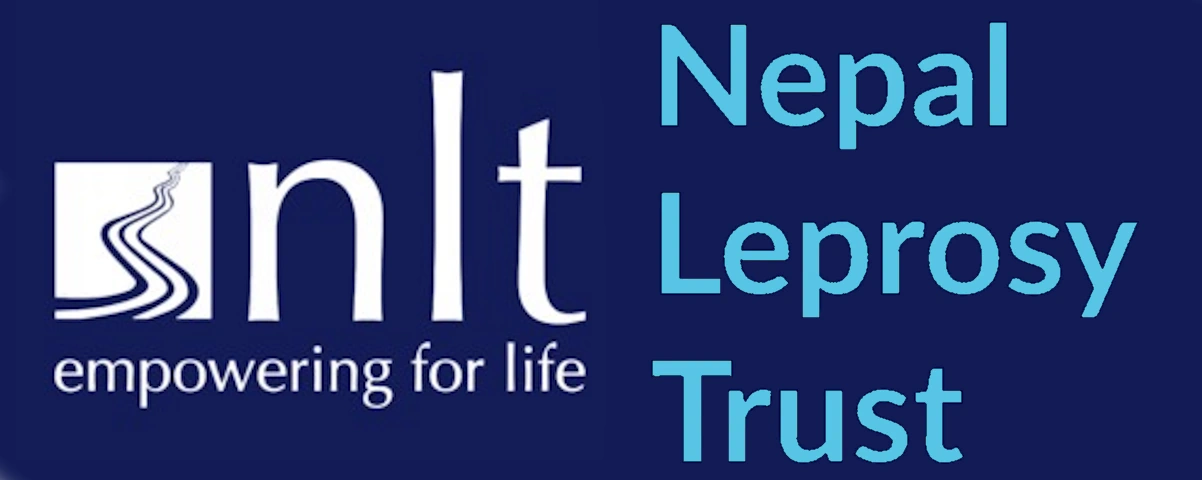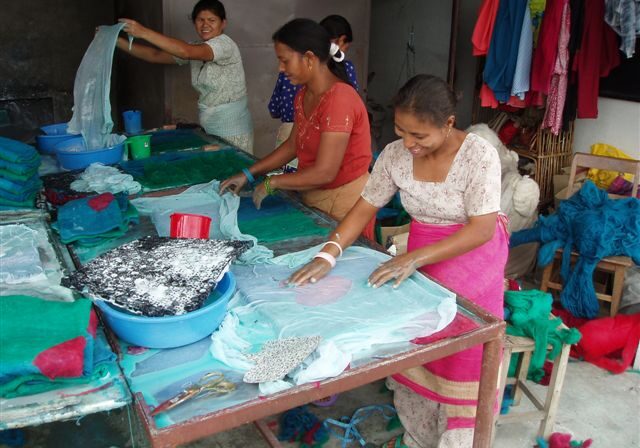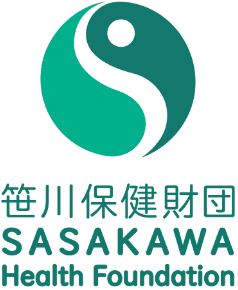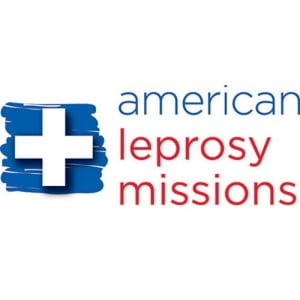About Us
Our organisation
Nepal Leprosy Trust is a Christian initiative, established in 1972 by Miss Eileen Lodge, to serve the most needy people of Nepal. It is registered as a non-governmental organisation (NGO) in Nepal, and as a Charity in England (Reg No. 1081952). The Trust is also registered as a Charity in the Republic of Ireland.
NLT in Nepal is governed by respected Nepali professionals and managers. NLT in the UK and in Ireland is governed by trustees, and exists to support the work in Nepal through receiving funds, communications, administration, and technical support.


Family spirit
Although the work has grown a lot over the years, it has maintained a warm 'family' spirit through close friendships, and a vision shared by its Nepali and expatriate workers. Visitors regularly notice and comment upon the quality, commitment and positive attitude of the staff.
NLT is committed to working with people affected by leprosy in all its programmes. It provides training to its Nepali staff, many of whom come from families affected by leprosy. Our working ethos aims to preserve the dignity of all those served.
Nepali leadership
NLT has worked to increase Nepali leadership within the organisation, and NLT in Nepal is now an autonomous organization led and managed by Nepalis. The Chief Executive of NLT in Kathmandu and the Programme Director of Lalgadh Leprosy Services Centre are both Nepalis who have served with NLT for many years.
NLT in the UK and Ireland, and NLT in Nepal, all regard themselves as part of the "NLT Family" with a shared vision and a shared Christian ethos.

NLT Mission Statement
NLT is a family of Christian organisations based in Nepal, Ireland and the UK. Our goal is to eradicate leprosy in Nepal and to help people affected by leprosy, and their families and communities, to lift their lives out of poverty and disadvantage and enjoy health, well being and respect.
We achieve this through medical treatment, social education and village development projects, targeting individuals, small groups and wider communities. The methods we use are well proven internationally, and our programme outcomes are statistically measurable.
We have been working for almost 50 years in Nepal, in partnership with other organizations working with leprosy, and in partnership with the Nepal Government.
Our work in Nepal
The work of NLT in Nepal is based in two areas - the Headquarters in Kathmandu and Lalgadh Leprosy Hospital & Services Centre.
Kathmandu Headquarters
The headquarters in Kathmandu is in the Lalitpur area. It deals with the main organisational relationships with Government departments, provides logistical support to the Leprosy Hospital and Services Centre at Lalgadh, and looks after leprosy patients who have to travel to Kathmandu for specialized treatment.
The Kathmandu headquarters also provides social support services and it operates a number of income generation projects that provide employment for various disadvantaged groups. NLT is a member of Fair Trade Nepal and the fair trade products manufactured are exported as well as sold locally. Profits go to supporting NLT’s social welfare initiatives, and to the work at Lalgadh.

Kathmandu Projects
Himalayan Handicrafts

Himalayan Handicrafts is a sheltered workshop staffed partly by people affected by leprosy and other disabilities, and also people who have been marginalised by poverty, and other causes. Himalayan Handicrafts is part of the Nepal Fair Trade Group and exports high quality leather, cloth, felt, and batik goods around the world.
Lydia Children's Fund

Lydia Children's Fund sponsors children from very poor backgrounds to enable them to go to school. We encourage sponsors to support very needy families with £15 a month. The child submits school reports to our office and writes to sponsors at Christmas. All the funds supplied by a sponsor go to the family concerned. We have over 70 children supported in this way.
Lydia Industry & Lydia Trading

Lydia Industry is a project providing training to, and employing disadvantaged women. A range of fabric products and greetings cards is produced.
Lydia Trading (Pvt) Ltd is the export arm of NLT in Nepal, exporting the fair trade products of NLT’s own industries and other organisations. Our main buyers are from the USA, UK, Sweden and Japan
Other Schemes

A Financial Assistance Scheme provides practical help to disadvantaged women, senior citizens, people affected by leprosy and others unable to provide for themselves.
Income Generation & Training - NLT responds to the specific needs of individuals on the verge of becoming destitute, by helping them get established with a trade such as animal husbandry or tailoring.
Lalgadh Leprosy Hospital & Services Centre
Lalgadh Leprosy Hospital and Services Centre is based in Lalgadh, a village in southeast Nepal next to the Ratu River. Lalgadh is on the East-West Highway about 90 km east of Patalaya and about 30 km northwest of Janakpur.
Lalgadh Leprosy Hospital and Services Centre (LLHSC) is our largest venture.

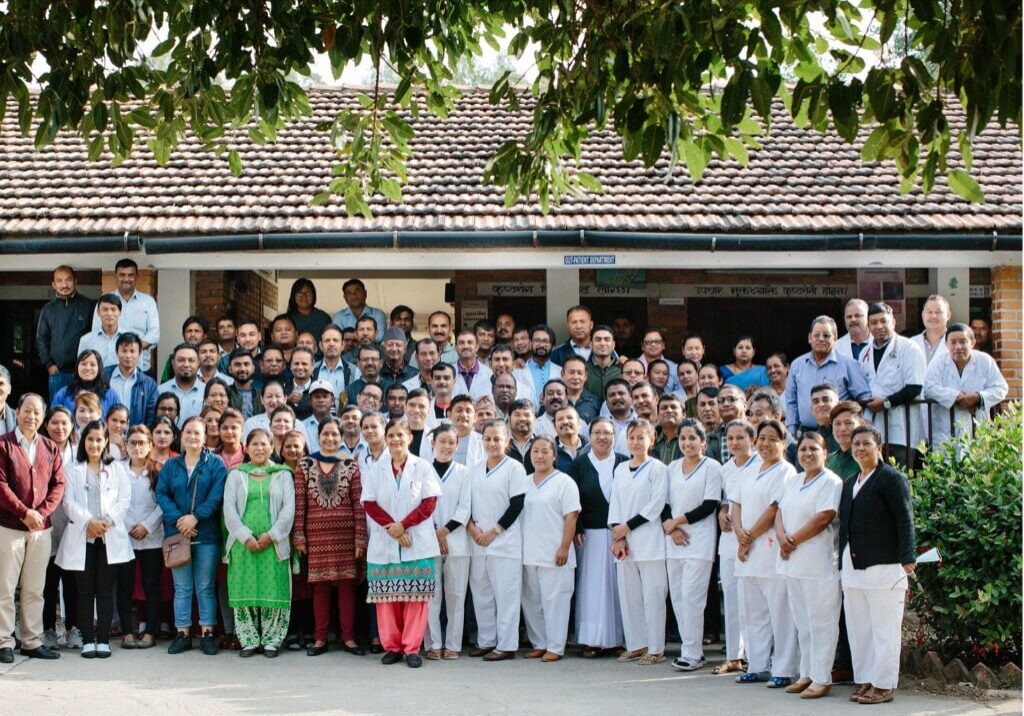
The Government of Nepal gave permission for the construction of LLHSC in 1990 and provided a free lease for about 17 acres of land. NLT took on an obligation to build the centre, provide staff and finances to run it, and establish, monitor and develop appropriate programmes.
LLHSC began to receive patients in 1993 and was officially opened in 1996. It is now one of the busiest centres of its kind in the world, in terms of new cases, with 900 to 1100 new cases diagnosed each year. As well as around 10,000 visits by leprosy patients seeking help each year it also receives over 90,000 visits each year from people needing help for general medical problems - mainly skin diseases.
Those affected by leprosy receive all treatment, food and drugs free of charge. They do make a small payment, equivalent to about 50 pence, towards their special footwear. This makes it more valuable to them and they take more care of it as a result.
Non-leprosy out-patients and in-patients are asked to pay for the basic cost of their treatment. Some are not able to do so and LLHSC tries to help them when it can, using funds collected for supporting the very poor.

Empowerment Projects
Stigma Elimination
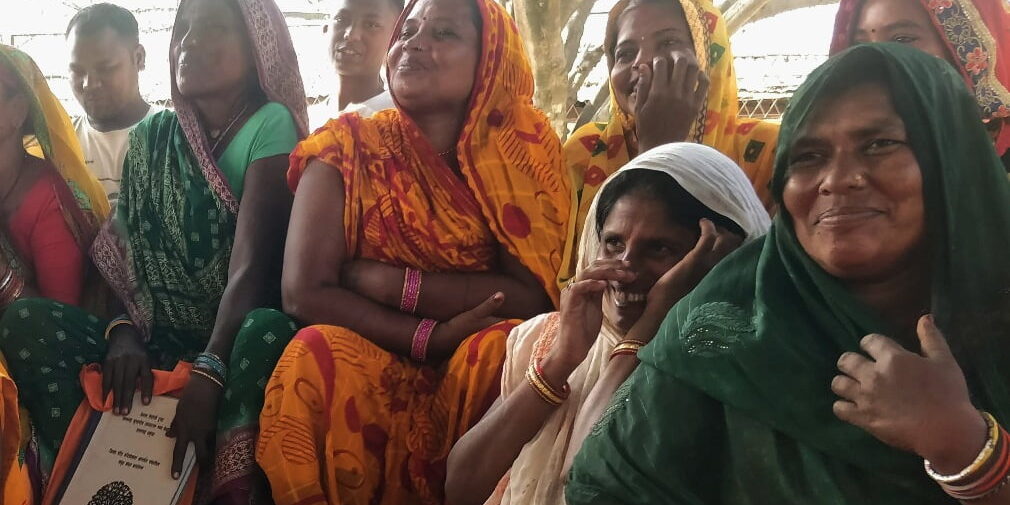
The Stigma Elimination Programme (STEP) began in 2002 as a pilot project with ten local self-help groups. These groups are a major success story and have played a key role in reducing the stigma of leprosy in their communities.
Studies have shown conclusively that people previously unable to participate in community life due to ostracism caused by leprosy, were almost fully integrated again after the STEP programme.
Village Alive

The original Village Alive project (VAP) centred on education, income generation and village improvements such as water pumps. It began in a very poor village where a leprosy self-help group was already active and trusted within the community.
Now in phase two, the project seeks to improve health awareness and access for villagers with multi-disciplinary teams that include medical and community development staff.
Our funding
A proportion of NLT's financial support comes from individuals around the world, many of whom have given faithfully for a number of years.
A small part of NLT's total income is from the sale of fair-trade Nepali products, mainly those manufactured in NLT's own income generating projects in Kathmandu. The profits from local and export sales help to support NLT's social welfare projects in Kathmandu.
Further income is generated by the sale of low-cost medicines and basic health services to general patients who come to LLHSC for help. We have expanded our general services in certain areas to increase the revenue we make and thereby help to subsidise our leprosy work.
NLT receives regular grants from several organisations that support leprosy control and prevention-of-disability projects around the world, including Sasakawa Memorial Health Foundation, American Leprosy Missions (ALM) and Fontilles amongst others.
NLT has also benefitted from a number of grant-making trusts that share its aims and objectives. We are looking to build further relationships with trusts willing to support our work both on a one-off or regular basis.
Employment & staffing
We employ, either directly or through our income generation projects, about 150 Nepalis, 115 being at LLHSC.
Under its agreement with the Nepal Government, we also have permission to employ some expatriate professionals from abroad, if necessary. LLHSC currently employs five Nepali doctors as well as Nepali nurses and paramedical workers. We have also sponsored a number of young Nepali doctors during their training.
NLT's workshops in Kathmandu provide employment for people affected by leprosy and other disadvantaged groups.
Administrative expenses in the UK are low, since offices are donated to the Trust, and the Directors and Trustees are unpaid volunteers. We have only two part-time paid UK staff.


Empowering for life
Help us make a difference
